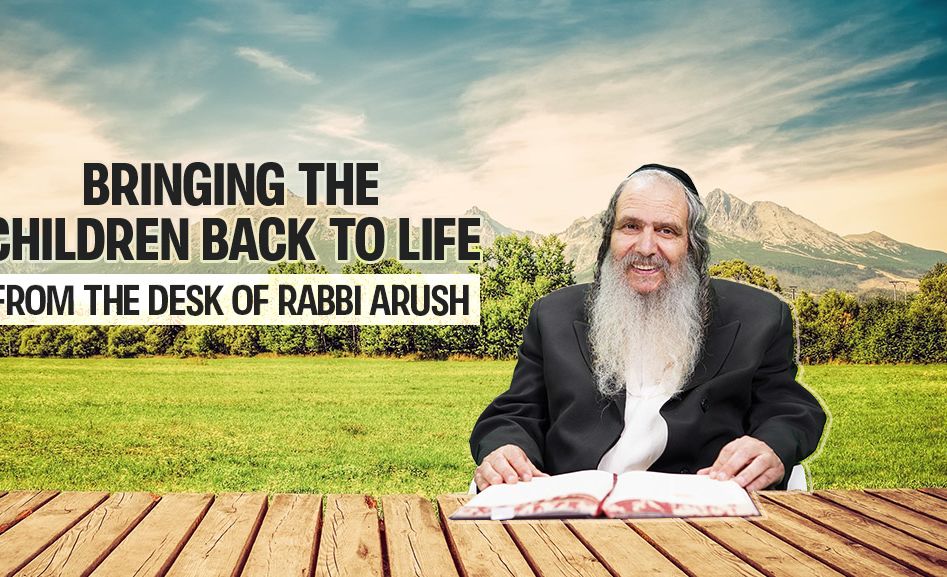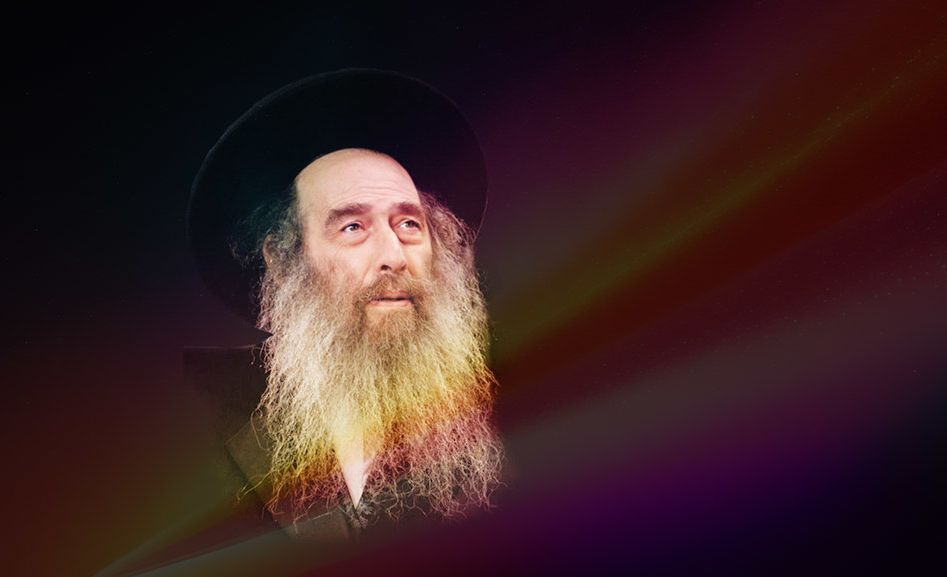
The Exciting Show
We all have times when our prayer or learning is done with a coldness, a lack of interest, and devoid of any enthusiasm. What's the answer? The Kalever Rebbe gives practical advice...

“Command Aaron and his sons, saying, This is the law of the Olah (burnt) offering: That is the Olah (burnt) offering which burns on the altar.” (Vayikra 6:2)
There are many people who – because of this generation’s challenges – have lost their desire to serve Hashem. The amount of time, if any, that they dedicate for davening and studying Torah dwindles. And, when they do daven or learn, it is with a coldness, a lack of interest and void of any enthusiasm.
Some of these people justify their behavior by claiming that they do not want to put on a show. They believe in honesty and truth. They want to express their “true selves” openly and honestly. They do not want to give off the false impression that they are enthusiastic about their Yiddishkeit if they do not feel that way in their hearts.
However, you must know that this perspective is one of the most effective tactics that the Yetzer Harah deploys to convince you to abandon your Yiddishkeit.
The pasuk says in Kohelet (7:16), Be not overly righteous… You cannot allow false self-righteousness to misguide you.
Of course, a person must strive to serve Hashem sincerely and enthusiastically with all his heart. However, even if they do not feel that way yet, they still have an obligation to serve Hashem with a fiery excitement externally even if they do not feel that way yet internally.
The Yismach Yisroel from Aleksander, zt”l, taught his students before he passed away, that the some of the Kadmonim wrote that a person needs to align their external behavior with their inner feelings; that you need to wait to have an external fire and passion until you have the internal as well. Then the Yismach Yisroel explained, that this guideline was only applicable to the earlier generations who – in their greatness – were always striving for this alignment, however, nowadays, in the darkness of this galut, everyone would agree that you should not wait for that internal fire and passion to come first. (Yismach Yisroel, Zot Chanukah, and the end of Section 56).
Become How You Behaved
The Sefer HaChinuch writes (Mitzvah 16) that a “person will act based on how they have acted.” A person’s behavior will have an impact on the type of person they will be in the future. If someone accustomed himself to doing good deeds with passion, even if it is only superficially, eventually his heart will be pulled in that direction, and he will sincerely feel it. R’ Aharon from Karlin, zt”l, instructed his students to engrave these words of the Sefer HaChinuch’s in their hearts, for they are a fundamental rule in the ways of Chassidut and piety.
Similarly, the Mesilat Yesharim (Chapter 7) explained that a person should zealously perform a mitzvah even if he doesn’t have a desire for it, because our actions can inspire our hearts; our behaviors can impact our emotions.
People once approached the Baal HaTanya, zt”l, with a complaint about some of his followers. They appeared like chassidim, they acted like chassidim, they dressed like chassidim and they had chassidish customs. But that was all external. Internally, they did not have a true, sincere connection and fiery passion like the original chassidim.
“If so,” replied the Baal HaTanya, “we will see by them what the Mishnah teaches (at the end of Pe’ah): And anyone who is not lame or blind but pretends to be as one of these, he will not die of old age before he actually becomes one of these…”
Not Just for You
Additionally, the behavior of parents has a tremendous impact on their children. One of the most fundamental concepts in Chinuch is that children model their behavior based on what they see their parents doing. If a child sees their parents enthusiastically and passionately studying Torah, davening, performing mitzvot, etc, then that will inspire the child to want to follow their example.
Therefore, even if a parent has succumbed to their own Yetzer Harah and have allowed themselves to lose that passion for Yiddishkeit, they must at least pretend to serve Hashem justly with love and fear whenever they are around their children. Otherwise, the children will see this complacency in Yiddishkeit and be lost forever.
Even if a child will realize that his parents aren’t sincere, he will understand that his parents are doing this because they want their children to follow the path of Torah. On the other hand, if a parent allows his complacency to show, then the child will not value Torah and mitzvot either.
Chazal taught (Pesachim 50b), A person should always engage in Torah study and performance of mitzvot, even if it is insincere, as through the performance of mitzvot insincerely, one comes to perform them sincerely. The simple meaning is that a person who does not sincerely want to study Torah and perform mitzvot will eventually be inspired to sincerely do so. However, the Seforim HaKedoshim add that if a parent does not feel sincere and passionate about their Yiddishkeit, they are still able to have children who will perform Yiddishkeit sincerely.
This approach is how parents can fulfill the mitzvah of Chinuch for the Sake of Heaven. A Jew once visited R’ Shlomo from Z’vehil, zt”l, and asked, “Before I would go to davening in the morning, I used to drink a cup of coffee while reading the newspaper. However, as my children got older, I started to realize that it didn’t look right to be reading the newspaper before I davened. So, I started reading a mussar book while I drank my coffee. However, I started to think that I should just return to read the newspaper. After all, that is what I really want to do. Learning the mussar book was only for my children. I am not sincere about it. What should I do?”
“You may not be sincerely learning that mussar book, but you are sincerely fulfilling the mitzvah to educate your children,” the Rebbe answered.
This is alluded to by our pasuk. Command Aaron and his sons… While the pasuk is referring to Aharon and his children, it applies to anyone who is serving Hashem. This is the law of the Olah offering… The word Olah stems from the same word as “elevated”. This is the one rule, the law for anyone who wants to become elevated and closer to Hashem. That is the Olah (burnt) offering which burns on the altar… They need to see a burning and enthusiastic passion for Yiddishkeit.
This explains why Rashi taught that the word “Tzav-command” is from the language of zealousness “now and for generations”. This commandment is to instruct Jews to be zealous about their Yiddishkeit for the sake of themselves and the generations to come.
**
The Kalever Rebbe is the seventh Rebbe of the Kaalov Chasidic dynasty, begun by his ancestor who was born to his previously childless parents after receiving a blessing from the Baal Shem Tov zy”a, and later learned under the Maggid of Mezeritch zt”l. The Rebbe has been involved in outreach for more than 30 years and writes weekly emails on understanding current issues through the Torah. Sign up at www.kaalov.org.










Tell us what you think!
Thank you for your comment!
It will be published after approval by the Editor.